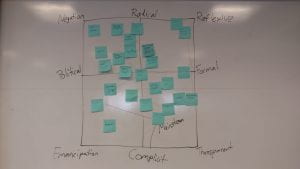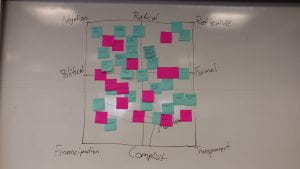Each student was asked to bring one image from each of the six cities in Dada: Zurich, Berlin, Hannover, Cologne, New York, Paris by Leah Dickerman. Students then got into teams and created six collages, one representing the ethos of the dada community in each city. Here are the results!



